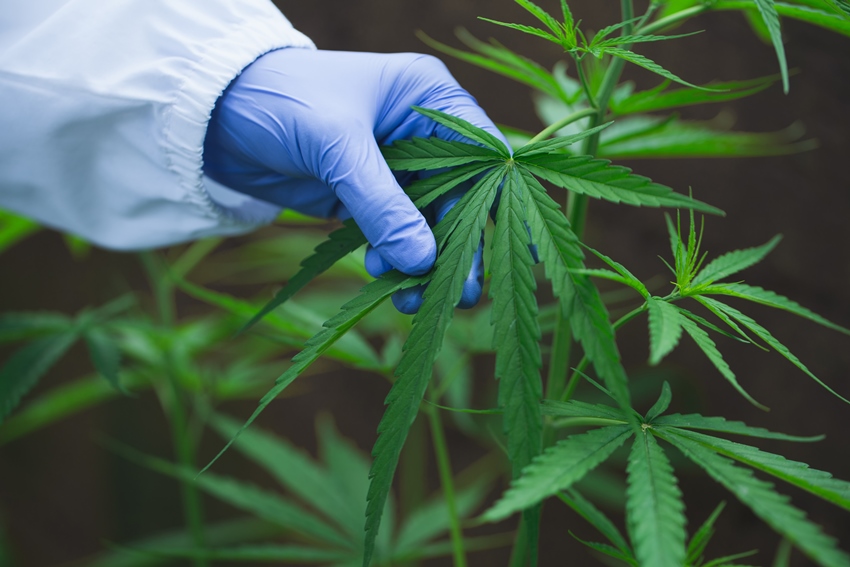Statement from the NCSA in support of request for more discussion on establishing a recreational marijuana sector
4 min read
The National Council on Substance Abuse (NCSA) supports the call by the head of the Barbados Chamber of Commerce and Industry (BCCI), Anthony Brancker, to have a serious discussion on building a recreational marijuana sector in search of economic drivers.
However, the NCSA posits a carefully crafted approach to recreational marijuana use as the engine of economic growth.
The NCSA has made some notable achievements in relation to the therapeutic value of marijuana, the traditional name of cannabis sativa, for health, including the recent reclassification of marijuana by the United Nations (UN) into a list of less harmful drugs.
Despite these achievements, a considerable amount of literature shows that prolonged smoking of marijuana leads to negative health consequences and triggers the emergence of mental disorders in vulnerable individuals, depending on the dose, frequency and early time of use. There is also evidence that some people may develop addiction.
The recognition that marijuana is less harmful than other dangerous drugs suggests that recreational use of marijuana would increase its availability and normalize its use, which would lead to negative health outcomes, especially among young people.
Although Barbadian adolescent women also use marijuana, recent data suggests a continued trend in marijuana use among young men under the age of 20.
Therefore, when considering marijuana, an attempt should be made to balance the costs of producing and distributing marijuana with the social costs of possible increased marijuana use, particularly among minors and adolescents.
In addition, the increasing emphasis on expanding the marijuana harvest may also determine how vendors market and promote marijuana to minors and adolescents.
Therefore, drug prevention and education institutions play a vital role in developing new drug prevention messages and programs with a special focus on children and adolescents. Drug prevention initiatives should also include efforts to reduce the harms associated with drug use, such as regulating the potency and purity of marijuana.
Discussions about the economic benefits of marijuana should seek to balance the potential gains from growing and selling marijuana with the type of prevention programs that are compatible with deterring marijuana use, especially among minors and adolescents.
For example, marijuana legalization can lead to advertising and marketing strategies that inadvertently increase recreational marijuana use among children and adolescents.
In this context, the NCSA has launched a number of drug prevention initiatives, focusing on the harms of drug use and the differences between recreational and medical marijuana, targeting elementary and secondary school students, parents, career counselors and religious organizations.
After all, discussions about marijuana tend to neglect the structural causes of the illegal drug trade and instead present problems through a narrow legal, regulatory and economic discourse.
More research is needed into the structural causes of the effects of drug use on individuals, institutions and society. The NCSA’s research plan recognizes the importance of the link between drug use and social structure and has launched several collaborative projects with local, regional and international organizations.
These projects focus on the psychological and social characteristics of those seeking treatment and on early warning systems that address the emergence of new and dangerous drugs in Barbados, including new cannabis strains and synthetic drugs.
While there is substantial evidence of psychological problems associated with chronic marijuana use, recent developments in the international community have allowed more extensive research into the medicinal value of marijuana. Therefore, Barbados should have an agenda to balance the economic benefits of marijuana with potential social costs.
Against this backdrop of economic growth and social costs, the NCSA is fueling the debate about recreational marijuana use.
The NCSA recommends the following to facilitate the discussion:
Carefully weighing the potential economic benefits of growing, producing, and exporting marijuana against the social costs of increased marijuana use, particularly among minors and adolescents. Build on the NCSA’s efforts to develop or modify new or existing drug prevention and education programs that focus on the harms of drug use. Develop a regulatory framework for the promotion and marketing of recreational marijuana. Regulation of the potency of marijuana or marijuana products by setting a maximum THC concentration, a minimum cannabidiol (CBD) concentration or a THC: CBD ratio below a certain threshold value (CDD, a derivative of marijuana that is associated with the reduction of Fear is related and has antipsychotic properties). Providing information about additives and concentrates on product labels. For example, infusing marijuana products with alcohol or nicotine. Promote a more solid understanding of the benefits but also the negative effects of marijuana in the media and the general public. Identify specific medical conditions that apply to prescription marijuana and protect the rights of prescription marijuana users and the right of employers to fire workers in the event of occupational accidents due to an employee’s current marijuana use. Research into broader workplace regulations for drug testing. Encourage further research on the structural reasons for marijuana use and trafficking. (NCSA)
Read our ePaper. Quickly. Thorough. Free.
Sign up and stay up to date with the latest Barbados news for FREE.








 Protected by Patchstack
Protected by Patchstack